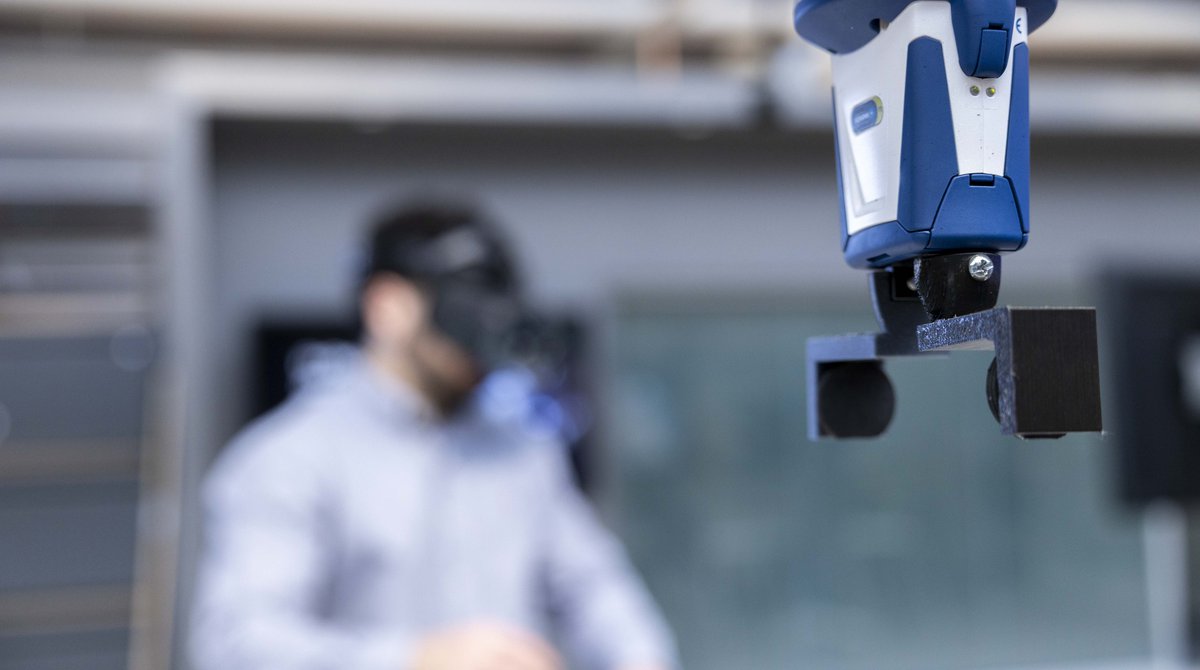University of Skövde joins forces for digital industrial development

The ShiftLabs project has received funding to strengthen the Swedish manufacturing industry. The University of Skövde is one of four nodes in the project and will assist companies in the digital transition for increased efficiency and sustainability.
As a participant in the ASSAR Industrial Innovation Arena, the University of Skövde has established itself as a node within the Swedish innovation hub ShiftLabs, part of a large EU-funded project. The goal of the university's participation in the project is to support small and medium-sized enterprises (SMEs) in Skaraborg with sustainability and digitalization issues, as well as to forge closer ties between academia and industry.
"I look forward to future collaborations within ShiftLabs. We have extensive experience in helping companies increase their efficiency and competitiveness. Now we are eager to scale up and see how we can improve and expand our services together. A fantastic opportunity for both us and participating companies," says Magnus Holm, Associate Professor in Automation Technology and project leader for the university's part in the project.
More than competence development
The Skövde node has already started with a small mini-course titled 'Introduction to Industrial Collaborative Robots,' in collaboration with the companies Furhoffs, Polarium, and Björneborg. In early 2024, work is planned to continue with several workshops, courses, company visits, and more. However, it involves more than competence development.
"ShiftLabs not only focuses on developing companies' competence, but we researchers from the University can also assist companies with analyses, digital solutions, and other services based on the needs of participating companies. What it will be, we will explore in dialogue with the companies that show interest. It is a great opportunity for the region's companies to take the next step in the digital transformation," says Magnus Holm.
In the initial stage of the project, the University has assessed how they can best provide support and worked to package the latest research to transfer it to various actors in the region.
Next up, starting in January, is a workshop series on industrial collaborative robots, special types of robots designed to work alongside humans in the industry. Instead of robots being confined to secure areas, these robots can work together with human colleagues and are equipped with sensors that allow them to sense and avoid obstacles, including people.
"We will go through how they work and what they can be used for. We can also explore how they could be used concretely in existing industries," says Magnus Holm.
Open workshops, courses, and other activities will be published continuously on ASSAR's website; keep an eye on the activity calendar.
